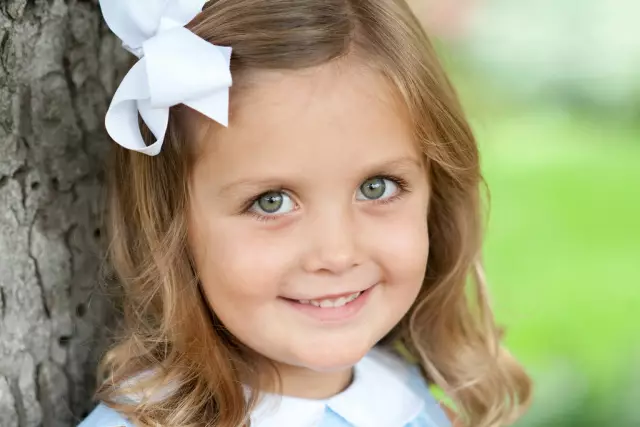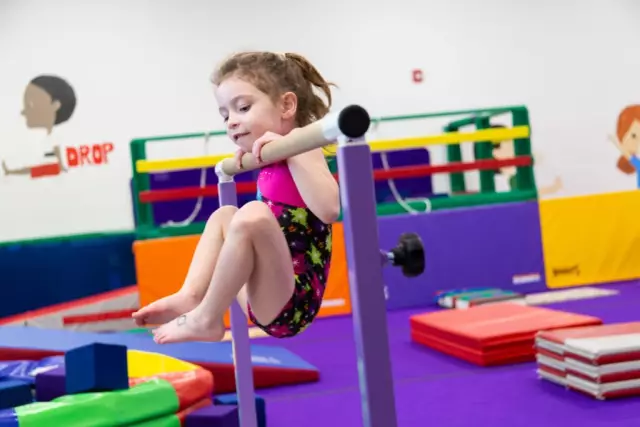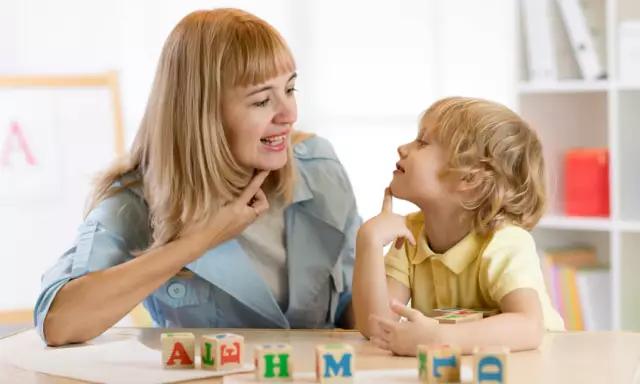- Author Rachel Wainwright wainwright@abchealthonline.com.
- Public 2023-12-15 07:39.
- Last modified 2025-11-02 20:14.
Play as a tool for the development of preschoolers
Everyone knows that kids love to play. However, not all parents think about the role of play in the development of a preschooler and often underestimate its importance in a child's life.
The value of play as a means of development for a preschooler

Play is a prerequisite for the development of both toddlers and preschoolers. It helps to improve their cognitive (ability to perceive and process information), physical, social and emotional states. Play is also an ideal opportunity for parents to fully participate in the education and upbringing of their children.
Parents can adjust play as a developmental tool for preschoolers by offering a reasonable alternative to passive and non-skill-building activities. If boys like to play with cars, it is a good idea to come up with a large roadmap with signs and traffic rules, adding pedestrians to the game. With this game, you can learn geometric shapes, colors and counting. Also, it will not be superfluous to know that the traffic itself is subject to certain rules, the observance of which is required of all road users.
Also, in the stores of educational toys, a wide selection of various aids in a playful way is now presented. Without the participation of adults, children themselves rarely show interest in them, so parents must create an appropriate environment so that they can use play as a means of developing preschoolers. When choosing benefits, you should pay attention to the age for which they are designed. In this case, it will be easy and interesting for the child to learn.
Despite the benefits of play for children and parents, today the time for playing together has decreased markedly, due to the rushed lifestyle and the desire to shift the responsibility for preparing children for school to early childhood development centers and kindergartens.
Influence of play on the development of preschoolers
Play is especially important for the development of memory and intelligence and allows children to use their creativity to develop imagination, physical, cognitive and emotional powers. It is through play that children learn from an early age to communicate and interact with the world around them.
It is best when the game as a means of development for preschoolers takes place under the guidance of adults who help to choose a topic and correct its direction in time. At the same time, they should not limit children to narrow boundaries, allowing them to fully reveal their creative and leadership abilities.
Interaction between adults and children through play makes it possible to communicate more effectively. It is also a great opportunity to see the learning process through the eyes of children and to better understand their point of view and the difficulties that arise.
The cognitive role of play in the development of a preschooler
Play is an integral part of the academic environment. Teachers note the important role of play in the development of a preschooler. For a child, play is the equivalent of work. Through the game, children will learn basic concepts such as counting, colors, geometric shapes. Also, almost all games require thinking and logic.
Many outstanding teachers of the past and present are of the opinion that social and emotional adaptation to school is the most painless in the form of play.
For the all-round development of the child and his preparation for learning, it is best to use complex techniques developed and tested in practice. They should include both cognitive and emotional components of the educational process. It is also necessary to maintain a reasonable balance between active and passive activities, taking into account the psychological characteristics of each child.
Social skills
Adapting to school is especially difficult for children who grow up in a family alone. Surrounded by the care of their parents and grandparents, they do not know how to share. And this applies not only to toys, but also to emotions. Also, for such children, the concepts of friendship, support, and mutual assistance are practically unfamiliar.
The influence of play on the development of preschoolers is noted by the majority of teachers who work with children in kindergartens and schools. They recommend that parents in families with one child do not limit the child's communication only to the playground, but give preference to collectives. This will help protect them in the future from the problems that, as a rule, arise when adapting to school.
Another important skill that children acquire through play is the ability to cooperate, negotiate and resolve conflicts that arise, which will help in the future to avoid or correctly solve problems that arise in communication. Also, playing in a group helps to quickly get used to new emotions and feelings - anger, happiness, sadness, fear, excitement, frustration and stress.
Physical activity
Unlike passive entertainment, play is a great way to increase the level of physical activity in children, which is an excellent prevention of obesity, especially against the background of modern trends in the development of society.
Active games provide an outlet for energy that is difficult to waste playing a computer. The sooner children learn that physical play is fun and natural, the better their prospects for maintaining healthy lifestyles in the future.
Also in the game it is easiest to develop hand motor skills, which plays an important role in the development of memory and intelligence.
Computer games

Today, in the educational environment, a discussion continues between supporters and opponents of computer games for children. They agree that the computer and the Internet are an integral part of the modern world, which means that they must be used wisely both for raising and teaching a child.
For the safe use of the Internet today, there are special children's browsers that protect the child from adult content, but at the same time leave him access to children's programs and interactive games.
Interactive games as a means of developing preschoolers can and should be used. However, it is desirable to do this under the supervision of adults who can appreciate them. Of course, the main issue when using a computer when teaching a preschooler is the time that the child spends near him.
There are different opinions about how much time a child of a certain age can spend in front of a computer without harm to health. And since children usually find these activities more attractive, psychologists recommend that you clearly discuss this issue with the child in advance. Also, they do not advise to punish children by refusing to play computer games, remembering the importance of play in the development of a preschooler.
Today, many educators recognize that play as a means of developing preschoolers is one of the best ways to educate and educate a child. The more varied these games are, the more developed the child will be. At the same time, many of its aspects can remain hidden for adults. Therefore, the sight of children at play should not be considered a waste of time.
Found a mistake in the text? Select it and press Ctrl + Enter.






